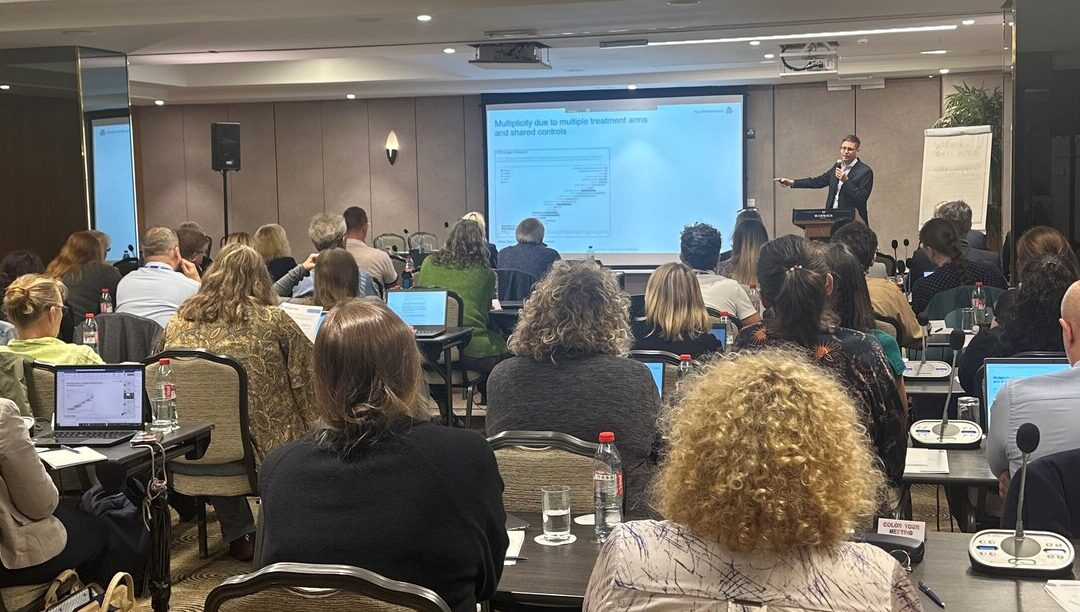- Representatives of Medical Research Ethics Committees (MREC) and National Competent Authorities (NCAs) met to improve preparedness for future pandemics
- The meeting was divided into two parts: plenary sessions dedicated to understanding the rationale, design and methodology of platform trials and break-out sessions to share experiences and review case studies of public health emergencies.
Brussels, 16 December 2024
On 5-6 September, the CT-CURE training meeting was held in Brussels to strengthen the capacity of European Union (EU)/European Economic Area (EEA) Member States to streamline and harmonise the review of clinical trial applications during public health emergencies.
Representatives of Medical Research Ethics Committees (MREC) and National Competent Authorities (NCAs) from Europe gathered to enhance preparedness for future pandemics by improving the regulatory review of clinical trial applications for platform trials.
The meeting was divided into two parts: plenary sessions dedicated to understanding the rationale, design and methodology of platform trials, identifying key regulatory and ethical issues and challenges, and adopting a harmonised and proportionate approach for the expedited review process in EU/EEA Member States of clinical trial applications in public health emergencies; and break-out sessions to share experiences and review public health emergency case studies among assessors from EU MREC and NCAs with the aim to propose additional steps to expedite and harmonise reviews while ensuring regulatory scientific and ethical excellence.
One of the highlights of the plenary session was the CT-CURE best practices explained by Associate Professor Janson Ann Marie Janson Lang from the Swedish Medical Products Agency (MPA), who shared his knowledge on the CT-CURE guidelines for expedited review of urgent trial applications and how the Clinical Trials Information System (CTIS) can be used to assess multinational platform trials with expedited timelines.
The meeting also focused on Complex Clinical Trials. Dr. Olga Kholmanskikh from the Belgian Federal Agency for Medicines and Health Products (FAMHP) presented examples from different therapeutic areas and the evolution of guidelines for complex clinical trials, emphasising the importance of collaboration and adaptability. Professor JBenjamin Hofner, Head of Data Science and Methods at the Paul Ehrlich Institute, discussed different methodological aspects and complexities of platform trials. Finally, Dr Monique Al, Advisor to the Central Committee on Research Involving Human Subjects (CCMO) and Co-Chair of the Clinical Trials Coordination Group (CTCG), also discussed the complexities of these platform trials but from the point of view of a regulatory assessor and how to keep oversight.
Dr. Christoffer Olsen, from Oslo University Hospital, provided the academic sponsor perspective, highlighting the rapid approval processes and challenges faced during the COVID-19 pandemic.
The other part of the meeting, the breakout sessions, included interesting discussions on simplifying Clinical Trial Application (CTA) submission, safety, informed consent and transparency in trials.
The training was a success, with 24 nationalities represented and positive feedback from participants. This event underscores the importance of preparedness, collaboration, and continuous learning in the evolving landscape of clinical trials.

